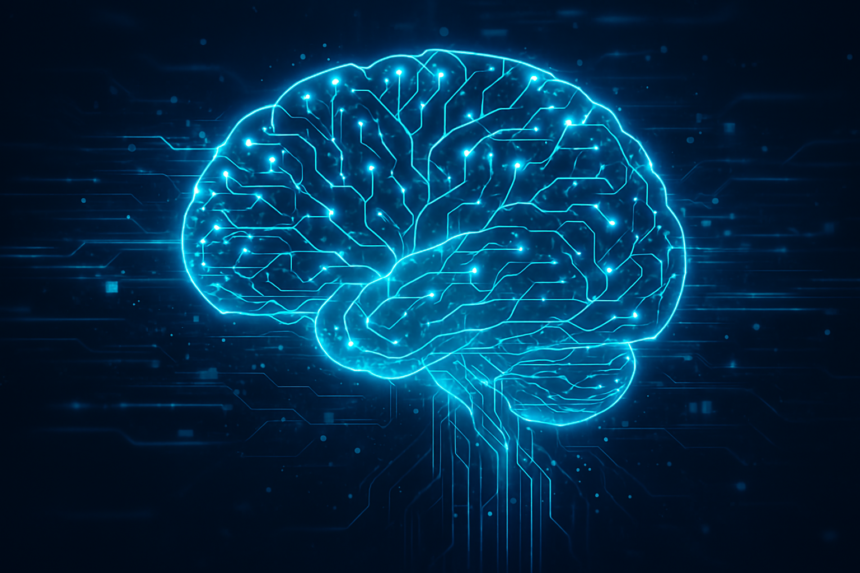GPT-4 is nearing the end of its run, but its legacy is far from over. OpenAI’s language model has defined many recent advancements in artificial intelligence. However, the future of AI is now being shaped by the GPT-4o model, which is set to bring about substantial improvements. One prominent feature of GPT-4o is its ability to “remember everything.” This new feature is poised to change how users interact with AI, offering a more personalized and adaptive experience than ever before.
While GPT-4 brought about impressive innovations, GPT-4o propels AI capabilities to new levels. By recalling past conversations and details shared by users, GPT-4o becomes more of a conversational assistant; it will truly understand its users over time, adapting its responses to better suit their needs. The feature improves how AI systems serve businesses and individual users.
What’s Happening & Why This Matters
GPT-4, despite being an incredible achievement for artificial intelligence, is now making way for its successor, GPT-5. OpenAI has been clear about the changes in GPT-4o, the most notable being its ability to remember everything. This enhancement promises a much more personalized user experience. With GPT-4o’s memory capabilities, the AI can recall specific conversations, preferences, and shared data during interactions. Users will no longer need to repeat themselves when interacting with the system, as GPT-4.5 can build upon previous exchanges.
The memory feature is a substantial step toward creating AI systems that provide helpful answers and adapt based on the history of interactions. It makes the tool more relevant, allowing AI to engage with users in a more natural and context-aware way. For example, GPT-4o can offer more precise recommendations tailored to past preferences and decisions if a user has a recurring task or project. OpenAI’s decision to integrate memory into GPT-4o is a trend in AI development, where machines are becoming smarter and more in tune with user needs.
At the same time, GPT-4o maintains the core strengths of its predecessor, GPT-4, including its exceptional ability to generate human-like text and handle complex queries in fields like coding, creative writing, and data analysis. Adding memory makes it more efficient and helpful, providing long-term benefits for users who rely on AI systems for day-to-day tasks.
A critical aspect of the GPT-4o model is that it remains accessible to users who subscribe to ChatGPT Plus, providing a more tailored experience. Users of ChatGPT Pro also benefit from the memory feature, enhancing their ability to interact with the system more effectively. However, for those who prefer to limit their interaction with AI systems to remembering past conversations, OpenAI offers the option to opt out of this feature entirely.
What Memory Means for Users
The introduction of memory in GPT-4o is a seismic event. ChatGPT has always been a helpful tool, but its ability to recall specific user details will create a whole new level of interaction. AI will no longer be simply reactive but will become proactive and context-aware. For users working on long-term projects or ongoing tasks, GPT-4o can offer consistent support, picking up where the last conversation left off.
What makes this feature particularly compelling is the potential for users to benefit from deeper personalization. GPT-4o will be able to remember personal preferences, interests, and work habits, offering responses that align with user expectations. If you regularly ask for help with market analysis, the system will recall your previous preferences and insights, giving more tailored recommendations.
This memory feature also introduces the possibility of AI-powered assistants that are more effective at handling tasks such as project management, content creation, and personal planning. Instead of repeatedly explaining the context, users will interact with a system already aware of their goals and preferences, streamlining the process.
However, as AI technology becomes more personalized, privacy and data security concerns become more pressing. OpenAI has been cautious about data usage, ensuring users can review and delete memories. This transparency is key in maintaining user trust as AI continues to evolve.
The Future of AI with Memory Capabilities
As GPT-4o begins to roll out, it’s clear that the future of AI systems is moving toward a more personalized and contextual experience. The ability of AI to remember user interactions will have a wide-reaching impact on how businesses, educators, and individuals use AI technology. Customer service representatives, for example, can use GPT-4o’s memory to recall prior conversations with clients, making interactions more fluid and less time-consuming. Students using AI for learning will benefit from more tailored study plans, and businesses will find AI-powered tools more useful in streamlining operations and personalizing customer outreach.
While GPT-4 was revolutionary in its capabilities, GPT-4o takes things further, ensuring users don’t need to repeat information across multiple interactions. Integrating memory into GPT-4o is a step toward AI systems that truly understand and adapt to human needs, whether for personal use or enterprise-level applications.
TF Summary: What’s Next
As GPT-4 exits and GPT-5 steps into the limelight, AI is becoming smarter, more personalized, and more adaptable. The introduction of memory marks a turning point in how we interact with artificial intelligence. Users will no longer have to reintroduce themselves or explain their preferences when interacting with the system. Instead, GPT-4o (and GPT-5) will retain crucial details, improving its responses over time.
This move is just the beginning. As AI memory becomes more prevalent, the systems we interact with daily will be able to provide deeply personalized experiences that evolve alongside us. As OpenAI leads this charge, other AI companies will likely follow suit, making this the new standard for intelligent systems.
— Text-to-Speech (TTS) provided by gspeech


